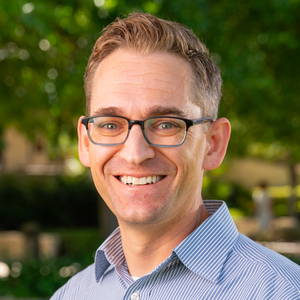
Professor Steve L. Porter likes to conduct a simple experiment when he teaches on the topic of spiritual formation. First, he asks students to describe how a person gets saved. He’s met with confident stares.
But then he poses another question: Describe how that same person can grow in Christ and overcome sin. This time the answers come slowly, if they come at all, with immense differences between them.
The quick exercise proves a point, Porter said: The church, as a whole, doesn’t have a clear enough understanding of the process of spiritual transformation.
“We’re really strong as Protestants on the doctrines of conversion and justification, but we’re not as well versed in what you do after you get saved,” said Porter, an associate professor of philosophy and theology at Biola. “We’ve done well on the salvation question, but when it comes to spiritual growth, we’re a little muddled.”
It’s an issue that leaders in the so-called spiritual formation movement have sought to address in recent years, and one that Biola has embraced through the work of its Institute for Spiritual Formation (ISF). Now, the institute is seeking to bring even greater depth to the conversation about spiritual growth — otherwise known as sanctification or discipleship — through a new academic journal devoted entirely to the subject.
The Journal of Spiritual Formation & Soul Care, of which Porter is managing editor, debuted last year as a twice-annual publication featuring the scholarly work of leading voices in the spiritual formation movement. Thus far, the journal has featured contributions from the likes of Dallas Willard, Bruce Demarest and ISF’s director, John Coe, who serves as the journal’s editor.
The articles, which are rooted in biblical truth and often integrate philosophy, church history, psychology and Christian experience, have dealt with such significant topics as resisting “moralism,” recovering from sexual abuse and adopting healthy prayer practices. During its first cycle, the journal drew more than 900 subscriptions — a sizable number for a new academic publication.
Porter said he hopes the journal will benefit scholars, pastors and students alike by bringing more research and discussion to a historically neglected doctrine.
The need for such a publication can be easily demonstrated by opening just about any major systematic theology book, he said. Most dedicate lengthy chapters to discussions of God, sin, salvation, Scripture and eschatology, but sanctification oftentimes gets a handful of pages, at most.
“There has been a trickle-down effect of that in our seminaries and churches,” he said. “The teaching that a lot of people receive is pretty thin when it comes to spiritual growth. ... There is a crying need in the church for something more.”
Sidebar: Making a Mark
Biola publishes four academic journals, featuring research and scholarship from leading
Christian thinkers on a range of important issues. To learn more about each journal — and to find free sample articles — explore them online.
- Journal of Spiritual Formation and Soul Care (published by the Institute for Spiritual Formation)
- Christian Education Journal (published by Talbot School of Theology)
- Journal of Psychology & Theology (published by Rosemead School of Psychology)
- Great Commission Research Journal
 Biola University
Biola University
.jpg)

